Free admission
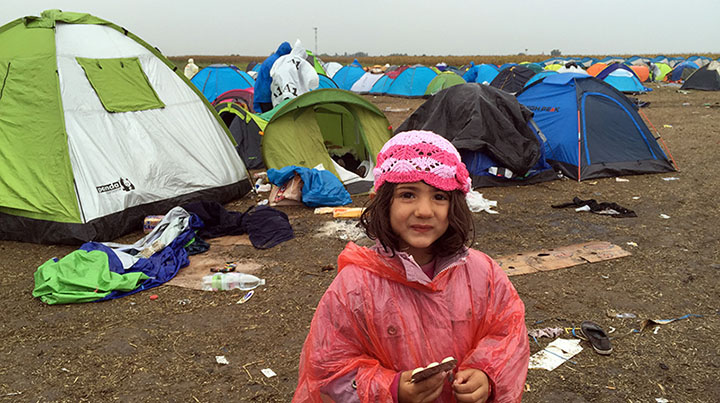
Since 2011 when the humanitarian crisis in Syria began, several million people have been forced to flee from their homes, many of whom are children and minors. Along the way, many experience physical harm, become separated from their family members, and have their childhoods violently taken away; yet every time, they find the strength to stand up once again to continue their journey to safety. From their flight from Syria and life in refugee camps in the Middle East, through to their arrival into the ‘promised land’ of Europe, “Born in Syria” follows seven young children in their long and emotional journey to where they see hope.
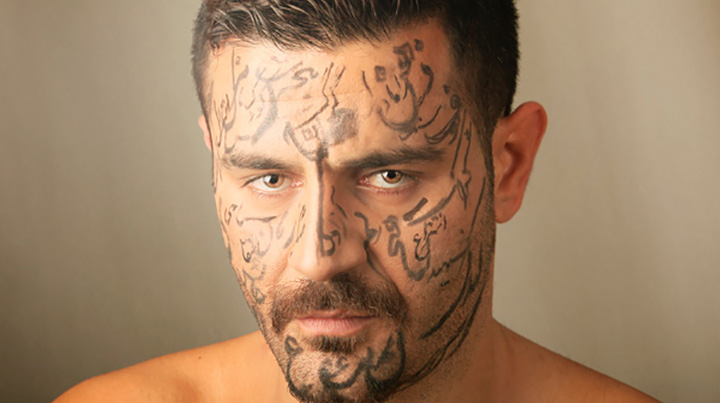
Shahin Najafi, a musician who uses rap and rock songs to send messages and criticisms about Iranian society, is possibly the most “wanted” Iranian musician with his songs deemed by the authorities to be blasphemous. In 2005, he fled to Germany as a refugee, however that did not change the fact that Shahin is at odds with the Iranian authorities. He puts his life on the line each time he steps on stage, continuing to be a defiant and dedicated artist who refuses to be silenced. With tens of thousands of refugees escaping war and arriving in Europe, he tries to find ways to help, but then Paris falls under terror attack.
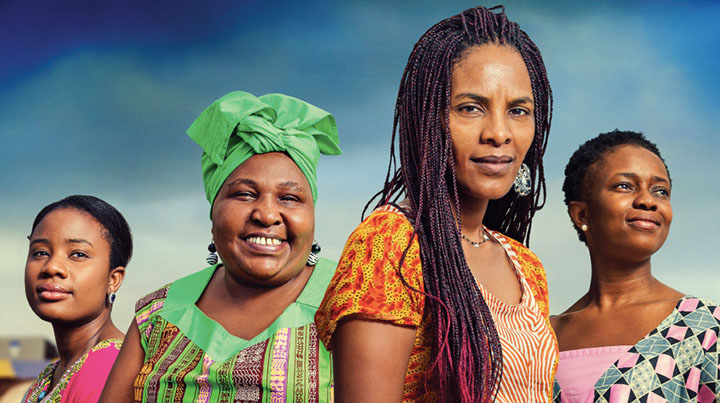
Four women fled from different parts of Africa to Australia in order to escape sexual violence and abuse; Aminata who was used as a sex slave by the rebels; Yordanos who was abandoned by her parents as a small child, and has very little memories from her childhood. They find a safe haven in Australia, but still hold their pain silently within them, until one day they decide to join a theater group and speak out. Heart-rending, heartfelt and ultimately uplifting, the film offers a message of hope and support for the women and children who have suffered around the world, whether in the context of war, or in a domestic situation.
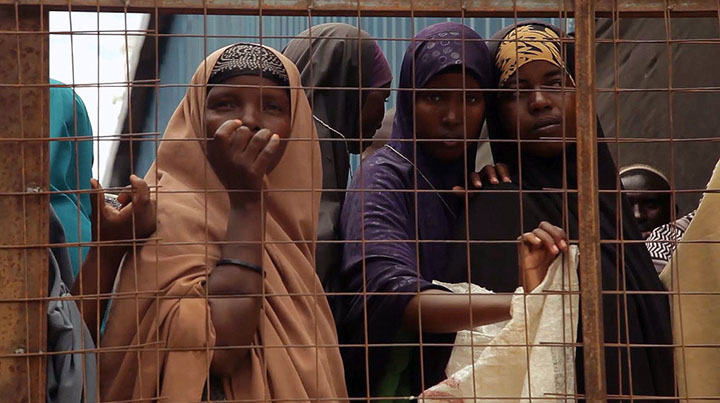
Dadaab refugee camp in Kenya is one of the world’s largest refugee camps hosting Somali refugees facing protracted displacement. Many study or work, and have aspirations and hopes for the future just like everyone else; however, they spend decades inside the camp, dreaming to be resettled. Warehoused sheds light on the history, and the seemingly insurmountable challenges facing refugees across the globe through an intimate glimpse into daily life at the camp, through the eyes of refugees themselves, aid workers, scholars, and those who have migrated to Africa.
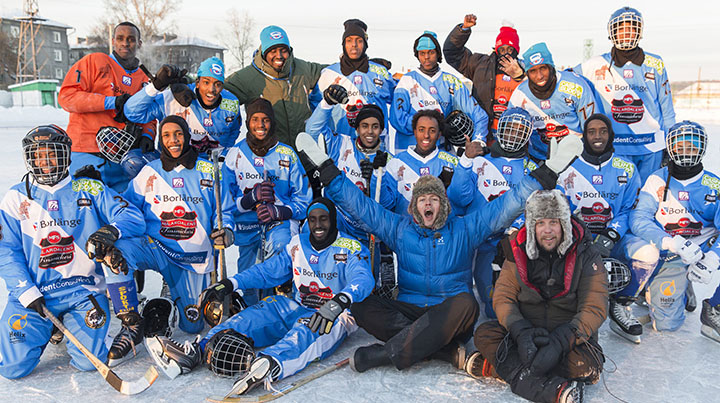
A group of refugee youths from war torn Somalia find themselves in Borlänge – a small village in Sweden. Though facing many challenges in integrating into the community, one day, a local entrepreneur proposes the creation of a first ever Somali ‘bandy’ team –a traditional winter sport played on ice – to build a bridge with the local community. During the course of the training for the World Championship, the youths slowly started to share their horrid experiences, and the sense of utter isolation in a land that was so foreign to them. Will bandy be able to become a bridge between the communities, and provide the youths with hope for the future?
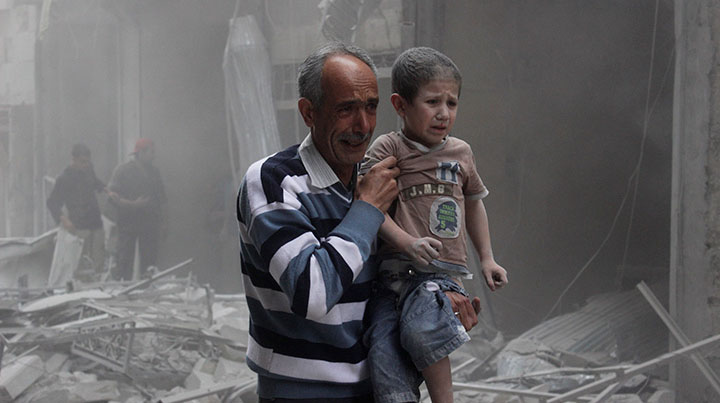
“Cries from Syria” is a searing, comprehensive account of a brutal five-year conflict from the inside out, drawing on hundreds of hours of war footage from Syrian activists and citizen journalists, as well as testimony from child protestors, leaders of the revolution, human rights defenders, ordinary citizens, and high-ranking army generals who defected from the government. Their collective stories are a cry for attention and help from a world that understands little of their reality nor agrees on what to do about it.
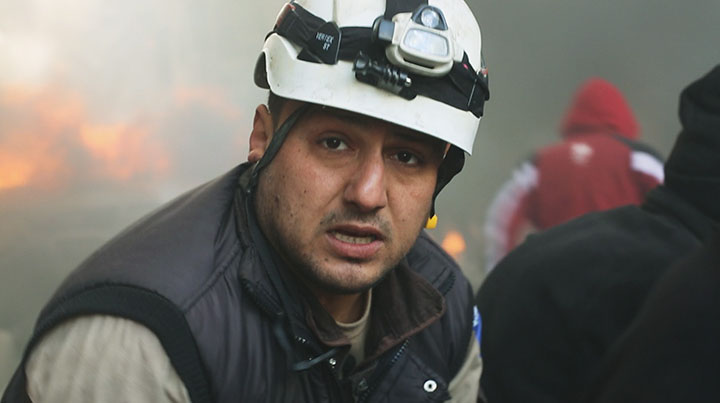
Today, the Syrian city of Aleppo is a city where bombs rain down, day and night. The “White Helmets”, Aleppo’s first responders, rush toward the bombed areas to search through collapsed buildings for the living and dead, while others run away. Although determined to remain in Aleppo to save the lives of innocent people, they too have families who they must protect. Constantly faced with the dilemma of whether to stay and dedicate themselves to those they vowed to help, or to leave the city in ruins and protect their families, Last Men in Aleppo bears testament to mankind’s capacity for unspeakable atrocity, and an ode to courage and compassion.
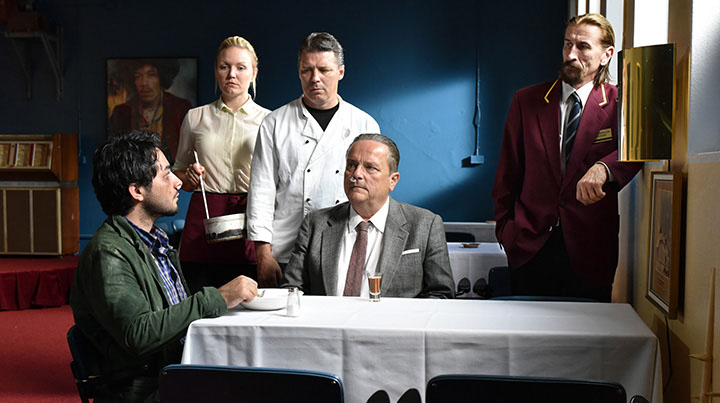
Khaled, a young Syrian refugee, sought asylum in Finland but was turned down by the courts and is ordered to return to the ruins of Aleppo. Determined to stay in the country, he escapes from detention and disappears into the streets of Helsinki where he faces violence and discrimination. One day, he meets an owner of a restaurant, Wikström, and is given a job at his restaurant. For a moment, life shows us its sunnier side, but all too soon fate intervenes… A second production brought to you by Director Kaurismäki of a uniquely humorous and heart-warming tale in the refugee crisis.
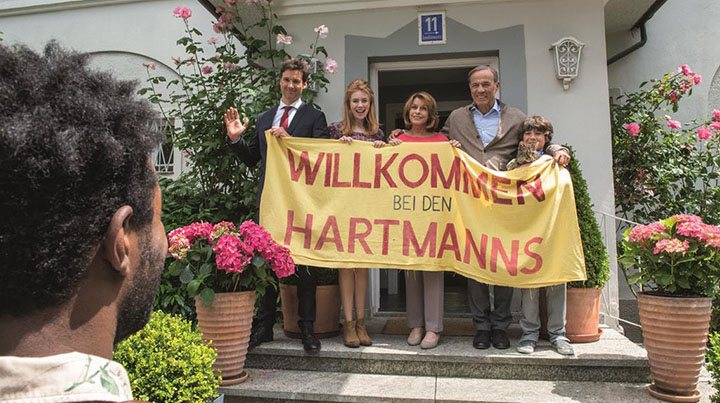
The Hartmann family lived in an affluent neighborhood of Munich. One day, mother Angelika, a retired teacher, decides to welcome a Nigerian asylum seeker Diallo into their home despite her husband’s opposition. Diallo gets along well with the family, however, they are all put to the test when faced with the realities presented by of xenophobia and suspicion of terror. “Welcome to Germany” sheds light on the rapport of refugees and the host communities are trying to build, and the human stories of refugees residing in Germany – a nation, that has been welcoming refugees from around the world.
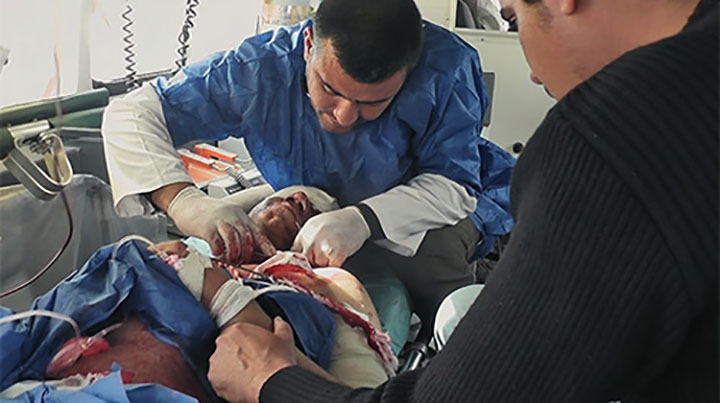
After the U.S. troops withdrew from Iraq in 2011, a male nurse named Nori Sharif was asked to report on the state of his country. Over the course of five years, he worked in the local hospital in Jalawla where he filmed victims of war in the “Triangle of Death”, one of the most dangerous and inaccessible regions of Iraq. Sharif continues to film despite increasing dangers, until 2014 when ISIS advances on Jalawla, finally taking over the city. The hospital is no longer a safe place. He too must flee at a moment’s notice, to bring himself and his family to safety.
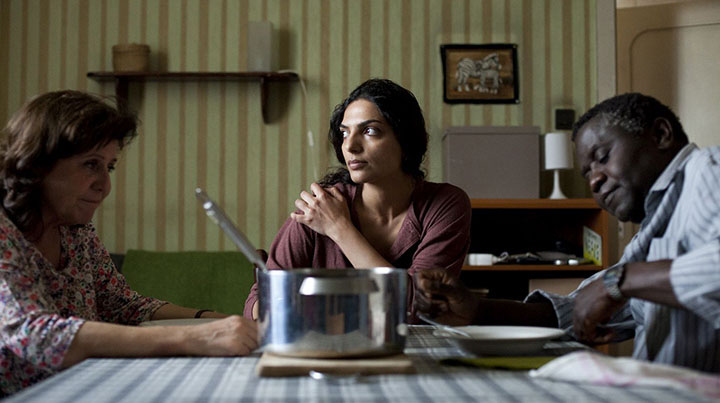
After making the perilous journey to Hungary as a refugee from his home country in Africa, Wilson works as a security guard in a shopping center, all the while studying for the exam for acquiring Hungarian citizenship. Though he finds love with his tutor Mari who devotedly supported him through this time, one day, he is found sheltering another woman in his house. Despaired and heartbroken, he receives the result of his exam and is faced with a tough decision in the quest of becoming a model citizen.
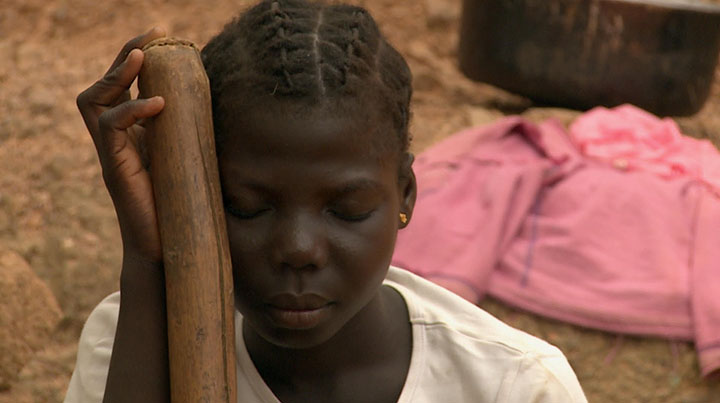
It all started with a school exercise book. Its pages were checkered with the testimonies of 300 Central African women, girls and men; a woman raising a baby she had conceived as a result of sexual violence; a young girl with a permanent disability from being shot in her knee; and while attempting to make the best of their difficult daily lives, the next war breaks out. Filmed over seven years, the film bears witness to the physical and psychological scars people must live with, and the collapse of order and civilization in a country torn apart by civil war and coup d’états.
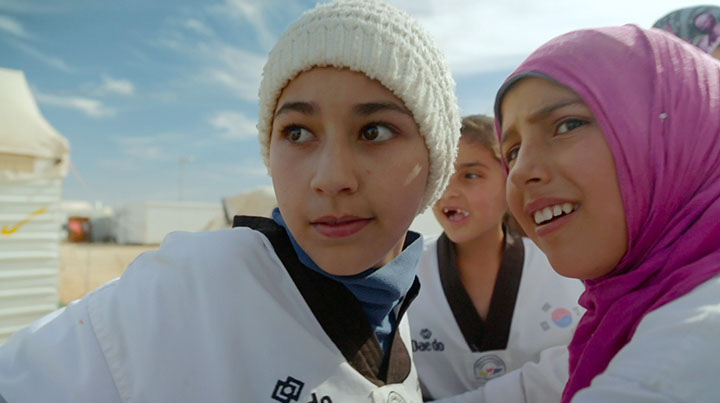
With the Syrian conflict now in its seventh year, millions of people continue to be displaced. “After Spring” follows life in Zaatari refugee camp – the largest refugee camp of Syrian refugees – from the eyes of refugee families aid workers and volunteers; a man who owns a small bakery, families celebrating their child’s birth, and aid workers teaching taekwondo to refugee children and youths… With no end in sight for the conflict nor for this refugee crisis, people are faced with the tough reality of having to rebuild their lives in a place that was never meant to be permanent.